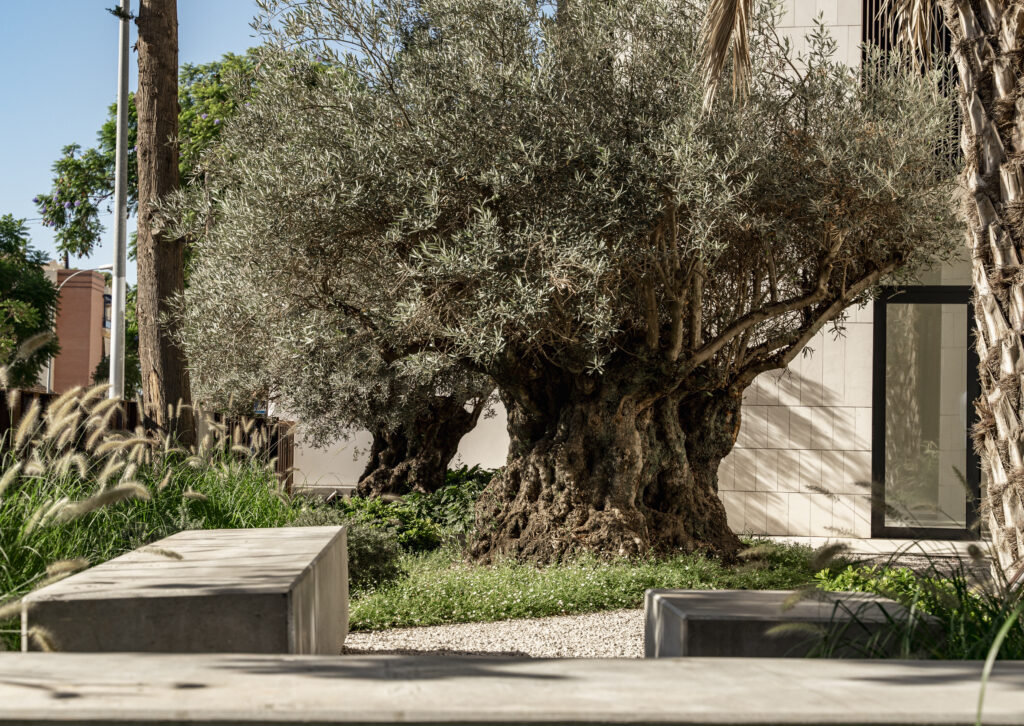THE REMARKABLE OLIVE TREE
The remarkable Olive Tree: A symbol of life, wisdom, peace, fertility, and more
Olive trees are renowned for their striking, silvery-green foliage and gnarled trunks, which add a touch of Mediterranean elegance and charm to any garden and landscape. The twisted, weathered appearance of mature olive trees adds character and uniqueness to your garden, making it stand out.

Moreover, olive trees are remarkably low-maintenance, requiring minimal care once established. They are drought-tolerant and can thrive in various soil types, making them an ideal choice for many climates.
We love olive trees, but not only because of their delicate and simple beauty, but for the fact that adding an olive tree to your garden also brings with it a wealth of symbolic meanings deeply intertwined with centuries of Mediterranean life and culture.
Let’s explore the fascinating world of these remarkable trees:
It’s story time – the myth of Athena and the Olive tree
Once upon a time, in the early days of Athens when the city had yet to be named, a fierce dispute unfolded between the formidable goddess of wisdom and war, Athena, and the powerful sea god Poseidon. Their quarrel revolved around who would be the patron god over the city and give their name to it.
Eventually it would all settle in a competition between the two gods. They both had to offer a gift to the inhabitants of the city, and in turn, they would choose who offered the most valuable gift, to win the city.
In a display of grandeur, Poseidon forcefully thrust his trident into the earth, causing a magnificent saltwater spring to surge forth. While visually impressive, this gift had limited practical use, as the water was unsuitable for drinking or agriculture. Athena on the other hand offered a more thoughtful gift. Seated gracefully, she planted something in the earth. An olive tree, the symbol of peace and prosperity, sprung from the ground. This remarkable tree would provide not only nourishing olives but also precious oil for lamps, cooking, and trade. Its branches offered cool shade, and its wood could be used for various purposes.
Recognising the superior value and wisdom of Athena’s gift, the people of Athens selected her as their city’s patron goddess. Hence, Athens derived its name from her, and the olive tree symbolised the city.
Many significant meanings
Yes – Olive trees hold a profound symbolic meaning and immense significance for the Mediterranean countries, rooted in history, culture, and tradition. These iconic trees have become emblematic of the region, embodying a multitude of symbolic representations and cultural significance, for example:
Endurance and Longevity
Olive trees are known for their remarkable longevity and resilience. Some olive trees in the Mediterranean are centuries old, with lifespans reaching over a thousand years. Their ability to withstand drought, harsh climates, and even fire makes them a symbol of endurance and persistence, mirroring the strength and determination of the Mediterranean people.
Abundance and Fertility
The olive tree’s rich fruit-bearing nature represents abundance and fertility. The olive itself is a staple in Mediterranean cuisine, used for its oil, fruit, and wood. The annual olive harvest, a tradition celebrated with festivals and gatherings, symbolises the bountiful rewards of hard work and the continuity of life.
Connection to the Land
Olive trees are deeply intertwined with the Mediterranean landscape, shaping the region’s geography and culture. They are often found dotting the countryside and defining the picturesque scenery of the Mediterranean. This connection to the land reinforces a sense of belonging, identity, and heritage.
Sustainable Living
The cultivation of olive trees and the production of olive oil have been sustainable practices in the Mediterranean for centuries. This sustainable approach to agriculture aligns with the region’s commitment to environmental conservation, making olive trees a symbol of eco-conscious living.
Cultural Significance
Olive trees feature prominently in the traditions, folklore, and mythology of Mediterranean cultures. They are associated with celebrations, rituals, and religious ceremonies. Olive branches were also used to crown victors in ancient Olympic Games, further emphasising their cultural significance.
Culinary Excellence
Olive oil, extracted from the fruit of the olive tree, is a cornerstone of Mediterranean cuisine. It is not only a source of healthy fats but also adds flavour and richness to dishes. Olive oil represents culinary excellence, with different regions producing oils known for their unique flavours and qualities.
In summary
Olive trees are not merely plants but living symbols of the Mediterranean’s history, culture, and values. Their enduring presence, fertility, and the precious oil they produce all contribute to their revered status as a powerful and meaningful emblem of the region. Incorporating them into your garden not only enhances its beauty but also imparts a sense of tranquillity, cultural richness, and natural abundance. Whether for their symbolism, aesthetics, or practicality, olive trees are a wonderful addition to any outdoor space. Finally, if you are curious about how to incorporate olives trees into your garden, get in touch with us. We are just waiting to turn your dream garden into reality!